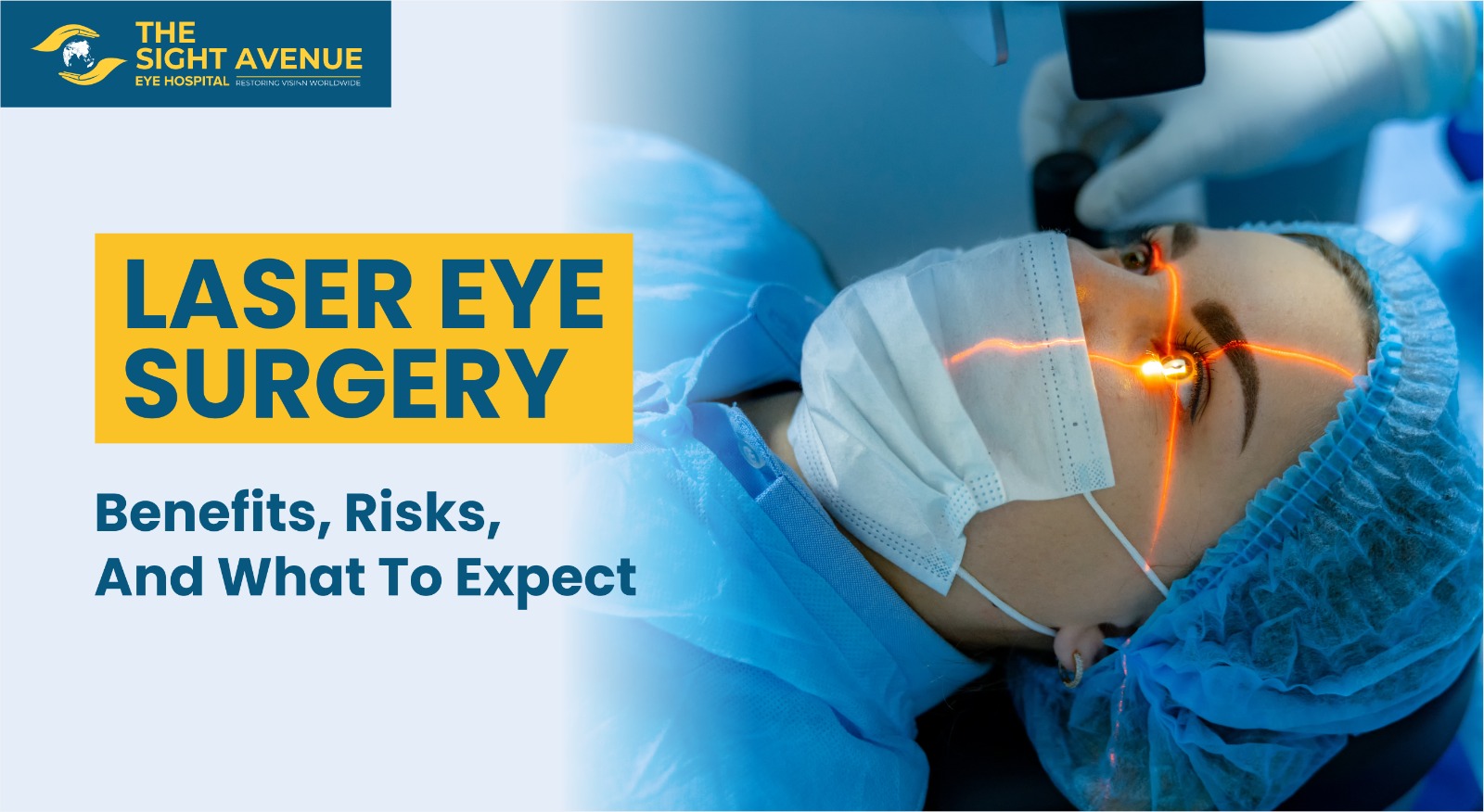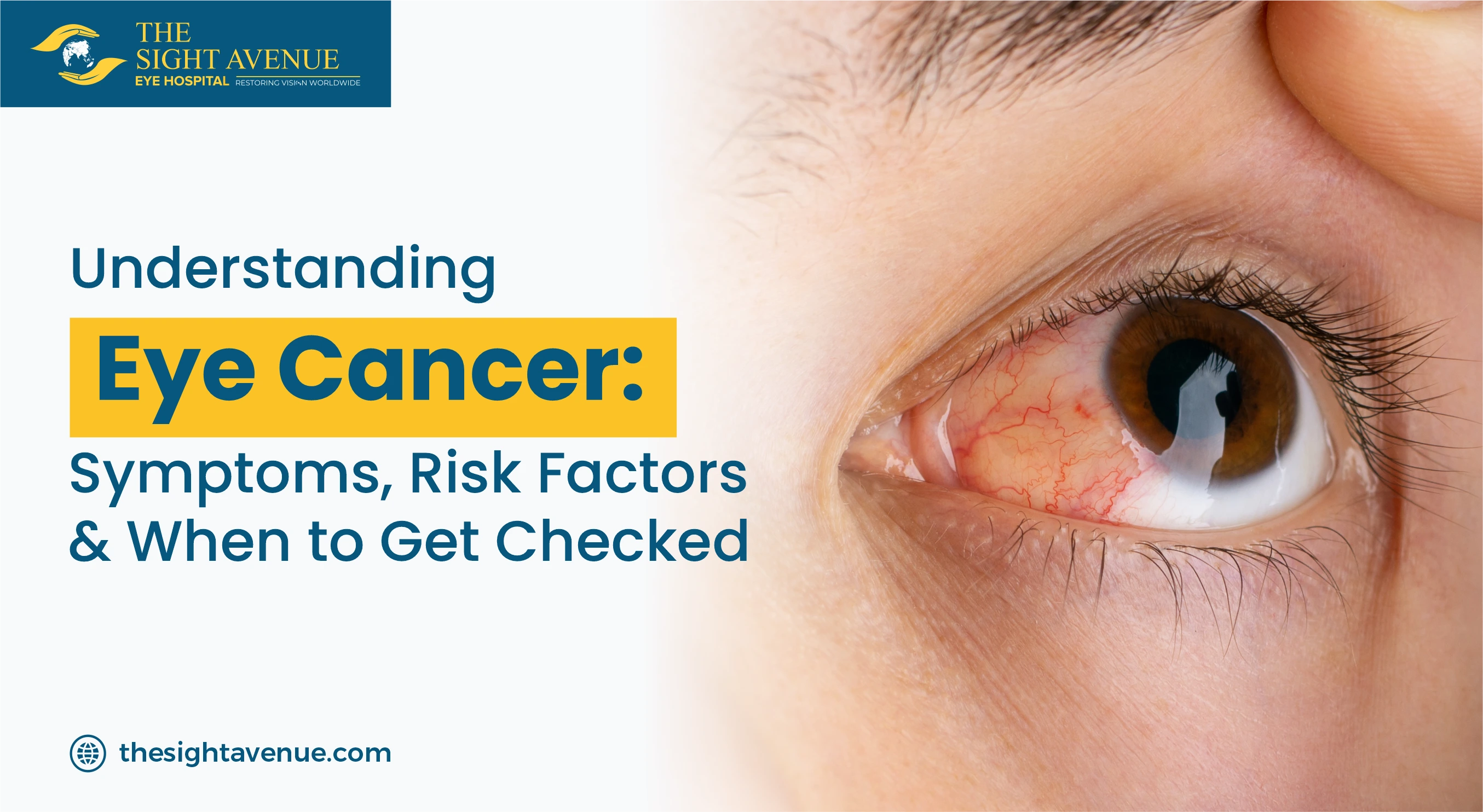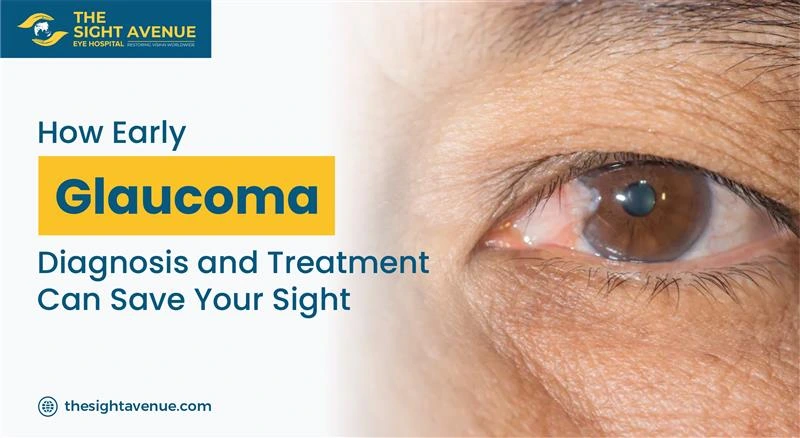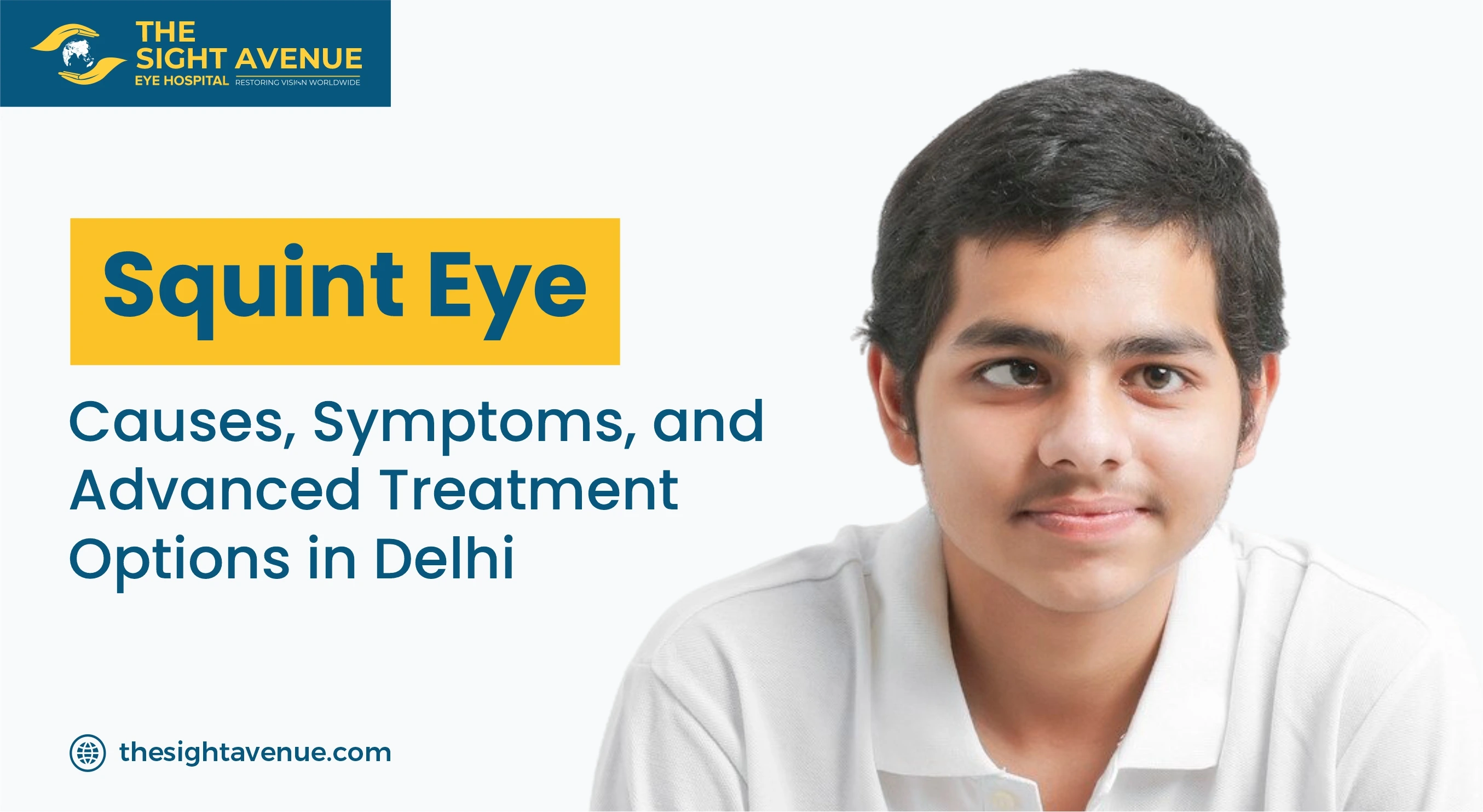Laser Eye Surgery: Benefits, Risks, And What To Expect

Glasses or contact lenses are probably a headache for many people in the world. Because no one likes to carry extra weight on their body, whether it is small or large, but for vision issues, people need to wear these glasses and lenses. Now, these glasses and lens problems can be solved through the Lasik eye surgery procedure; it is the best way to get rid of glasses. And this blog may help you to get all the information about laser eye surgery.
Understanding Of Laser Eye Surgery
Laser eye surgery, often referred to as Lasik eye surgery procedure, uses a precise laser to reshape the cornea, the front part of the eye. This reshaping corrects vision problems like nearsightedness, farsightedness, and astigmatism. The result is often reduced or eliminated reliance on glasses or contact lenses for improved vision.
Know More: Lasik Vs SMILE Vs SILK Eye Surgery
Types Of Lasik
- Bladeless LASIK: In this type, a femtosecond laser is used to create the corneal flap, offering greater precision and safety.
- PRK (Photorefractive Keratectomy): PRK involves removing the corneal epithelium entirely before reshaping the cornea, making it suitable for people with thinner or irregular corneas.
- Epi-LASIK: Epi-LASIK combines elements of PRK and LASEK, involving the separation and preservation of the epithelium.
- Monovision LASIK: This technique corrects one eye for near vision and the other for distance vision, offering an option for individuals over 40 experiencing presbyopia.
- Topography-Guided LASIK: This approach uses advanced corneal topography technology to create a highly customized treatment plan, often suitable for those with irregular corneal shapes.
- Refractive Lens Exchange (RLE): RLE is a lens-based procedure that replaces the natural lens with an artificial one to correct vision, often chosen by individuals with extreme refractive errors.
- PresbyLASIK: PresbyLASIK is designed to address presbyopia, a common age-related vision issue, by creating a multifocal cornea to improve near and far vision.
Know More: What Is Contoura Vision Surgery?
The Benefits of Lasik Eye Surgery Procedure:
- Improved Vision: The most obvious benefit is achieving better vision. Many individuals no longer need glasses or contacts after the procedure.
- Convenience: No more fumbling for glasses in the middle of the night or dealing with the daily routine of inserting and removing contact lenses.
- Enhanced Quality of Life: Better vision can lead to improved self-esteem and confidence. It can improve the pleasure of everyday things like driving, reading, and sports.
- Cost-Efficiency: Over time, the cost of prescription glasses and contact lenses can add up. Laser eye surgery can be a cost-effective solution, eliminating the need for these ongoing expenses.
Understanding the Safety Aspects of Laser Eye Surgery
- Thorough Consultation: Begin with an in-depth consultation with your eye surgeon. Discuss your medical history, expectations, and any concerns you may have.
- Qualified Surgeon: Ensure your surgeon is experienced and board-certified in refractive surgery. Check reviews and ask for patient testimonials.
- Advanced Technology: Opt for clinics using state-of-the-art laser technology, which enhances precision and safety during the procedure.
- Realistic Expectations: Understand the potential risks and benefits. Maintain realistic expectations regarding the outcomes of the surgery.
- Preoperative Screening: Rigorous preoperative screening is crucial. Ensure your surgeon assesses your eye health comprehensively to rule out any contraindications.
- Postoperative Care: Adhere to postoperative care instructions diligently. Attend follow-up appointments and communicate any unusual symptoms promptly.
- Patient Reviews: Research patient experiences online to gain insights into the safety and effectiveness of the procedure from those who have undergone laser eye surgery.
- Like any other surgery, it also carries some risks, but LASIK has proven highly effective in vision correction for many years, aiding people worldwide. If you have any queries about LASIK surgery or safety, it's important to consult with an expert for personalized guidance.
Know more: Common Questions About LASIK Eye Surgery
What to Expect
Pre-Surgery Evaluation:
You'll have a thorough eye checkup to make sure the Lasik eye surgery procedure is a good fit for you.
Before the surgery, you will have a full eye exam to ensure you are a good choice. Not everyone should get laser eye surgery.
Surgery Day:
The surgery is usually quick and painless. You may receive local anesthesia or eye drops to numb the eye. The laser reshapes the cornea to correct the vision.
Recovery:
You may experience some discomfort in the hours following the surgery. Your eye doctor will provide guidelines for post-operative care.
Follow-up Visits:
You'll need to attend follow-up appointments to monitor your progress and ensure your eyes are healing as expected.
Long-Term Care:
It's important to keep getting regular eye exams to check on your eye health and general vision, even after surgery goes well.
Who Is A Good Candidate For Lasik Eye Surgery?
- Stable prescription for at least a year.
- Healthy corneas with adequate thickness.
- Good overall health.
- Not pregnant or nursing.
- Not prone to eye dryness.
- No severe eye injuries in the past.
Know more: Blurry Vision in Pregnancy
Conclusion
Lasik eye surgery procedure, which reshapes the cornea, can correct vision issues and free you from the need for corrective eyewear. While it comes with benefits like improved vision and convenience, it's not without potential risks, including dry eyes and visual disturbances.
However, Lasik isn't for everyone. The ideal candidate has a stable prescription, healthy corneas, good overall health, and no severe eye injuries in their history. Before deciding, consult with an eye specialist to determine if Lasik is the right choice for your vision needs.
Related Blogs
Eye problems? Searching for an eye specialist near me in Delhi NCR? The Sight Avenue has 5 eye clinics in Delhi NCR . Contact:
Eye Hospital in Delhi
- The Sight Avenue
E-82-A, Ground Floor, Hansraj Gupta Rd, Greater Kailash I, New Delhi, Delhi 110048
Email: enquiry@thesightavenue.com
Tel: 011-4666 0666
Mob: +91-8883330799
- The Sight Avenue
- Fortis Hospital, Escorts Okhla, New Delhi - The Sight Avenue
- Fortis Hospital, Vasant Kunj, New Delhi
Eye Hospital in Gurugram
- The Sight Avenue
243 P, Sector 38, Near Bakhtawar Chowk, Gurgaon, Haryana 122001
Email: enquiry@thesightavenue.com
Tel: 0124 361 1111
Mob: +91-7900070040
- The Sight Avenue
- Manipal Hospital, Palam Vihar, Gurgaon
Recent Post





